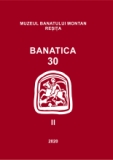Aspecte privind relatiile Romaniei cu Iugoslavia in timpul guvernarii Iorga-Argetoianu (aprilie 1931-mai 1932): relatiile diplomatice
Aspects on the relations of Romania with Yugoslavia at the time of the Iorga-Argetoianu government (april 1931-may 1932): the diplomatic reports
Author(s): Eusebiu NaraiSubject(s): Diplomatic history, Political history, International relations/trade, Interwar Period (1920 - 1939)
Published by: Editura Mega Print SRL
Keywords: foreign policy; Romania; Yugoslavia; Banat; Sever Bocu;
Summary/Abstract: The diplomatic reports of the period 1931-1932, reflected in the pages of the West newspaper, consisted of a few defining actions of the various cabinets that perished in the management of Romania, focused on maintaining the status quo in the area and on perpetuating good relations with its neighbors, notably Yugoslavia and Czechoslovakia, partners in the Small Understanding: conferences of the Small Entente, including informal meetings of foreign ministers and representatives of the press; the Romanian-German diplomatic conflict, determined by the lack of tactics of the Iorga cabinet; frequent meetings, between the sovereigns of Romania and Yugoslavia, determined by the kinship relations; counteracting attempts to bring Italo-Czechoslovak and Italo-Yugoslav closer together, with the (unannounced, of course) aim of weakening the Little Understanding and undermining French influence in this part of the continent; promoting the interests of the Romanian minority in Yugoslavia, based on bilateral Romanian-Yugoslav relations; the open opposition of the Little Understanding to the possible return of the Habsburg to the throne of Hungary or even an independent Austria, without any connection with Germany; the concerns of the states of Little Antanta towards the expansionist German plans in the east of the continent, which were, initially, aimed at Austria; the concern raised, within the Small Antanta, of the strengthening of the alliance between the two countries, which were quite marginalized after the First World War (Germany and the Soviet Union); the approval of the French plan Herriot-Boncour on the issue of disarmament, which included all the essential elements of international security, as well as the rejection of the idea of revising the peace treaties, by the states of the Little Antanta; monitoring the German-Hungarian and Hungarian-French diplomatic ties; the efforts made by the Yugoslav and Romanian diplomacy to bring Bulgaria closer to the Little Understanding and, eventually, its co-operation in the new alliance being formed, the Balkan Antanta, etc. In conclusion, the West daily – considered by many banatians as a guiding light, a moral model for presenting reality – captures the complex relationships within the Little Understanding, with ups and downs, quite objectively, shattering myths or counterfeit images of some leaders and promoting banatism, as an integral part of romanianism.
Journal: BANATICA
- Issue Year: 2/2020
- Issue No: 30
- Page Range: 383-407
- Page Count: 25
- Language: Romanian

